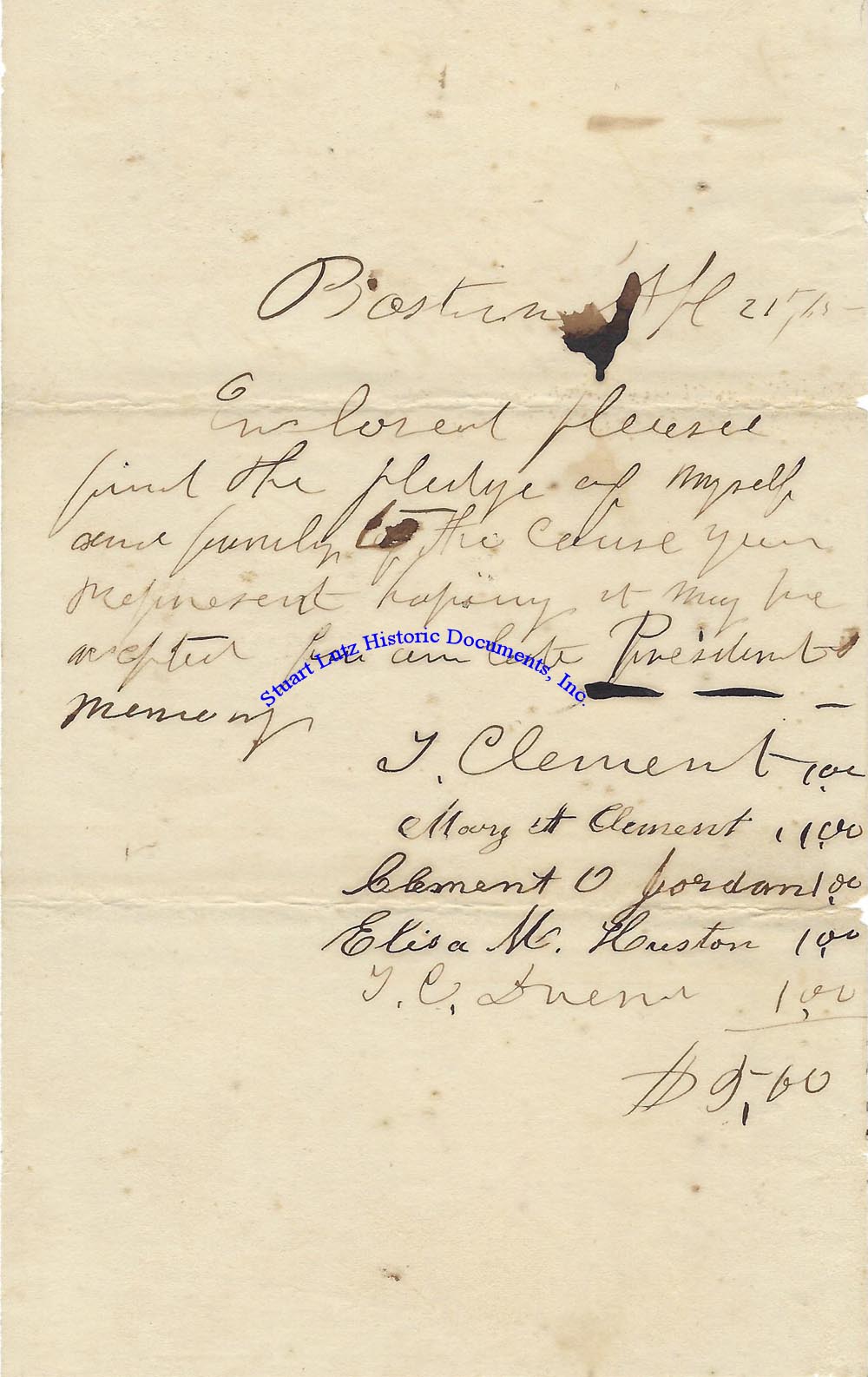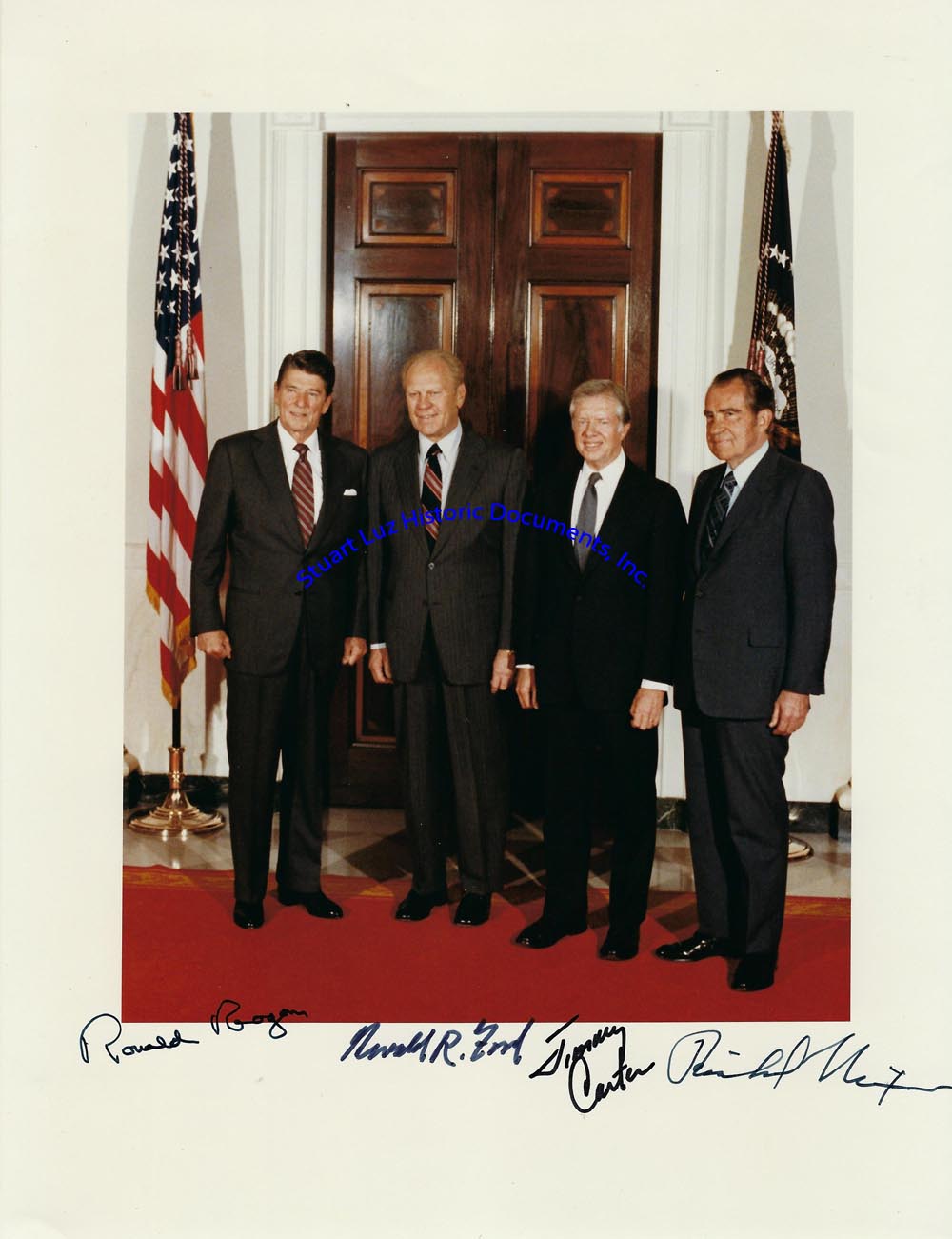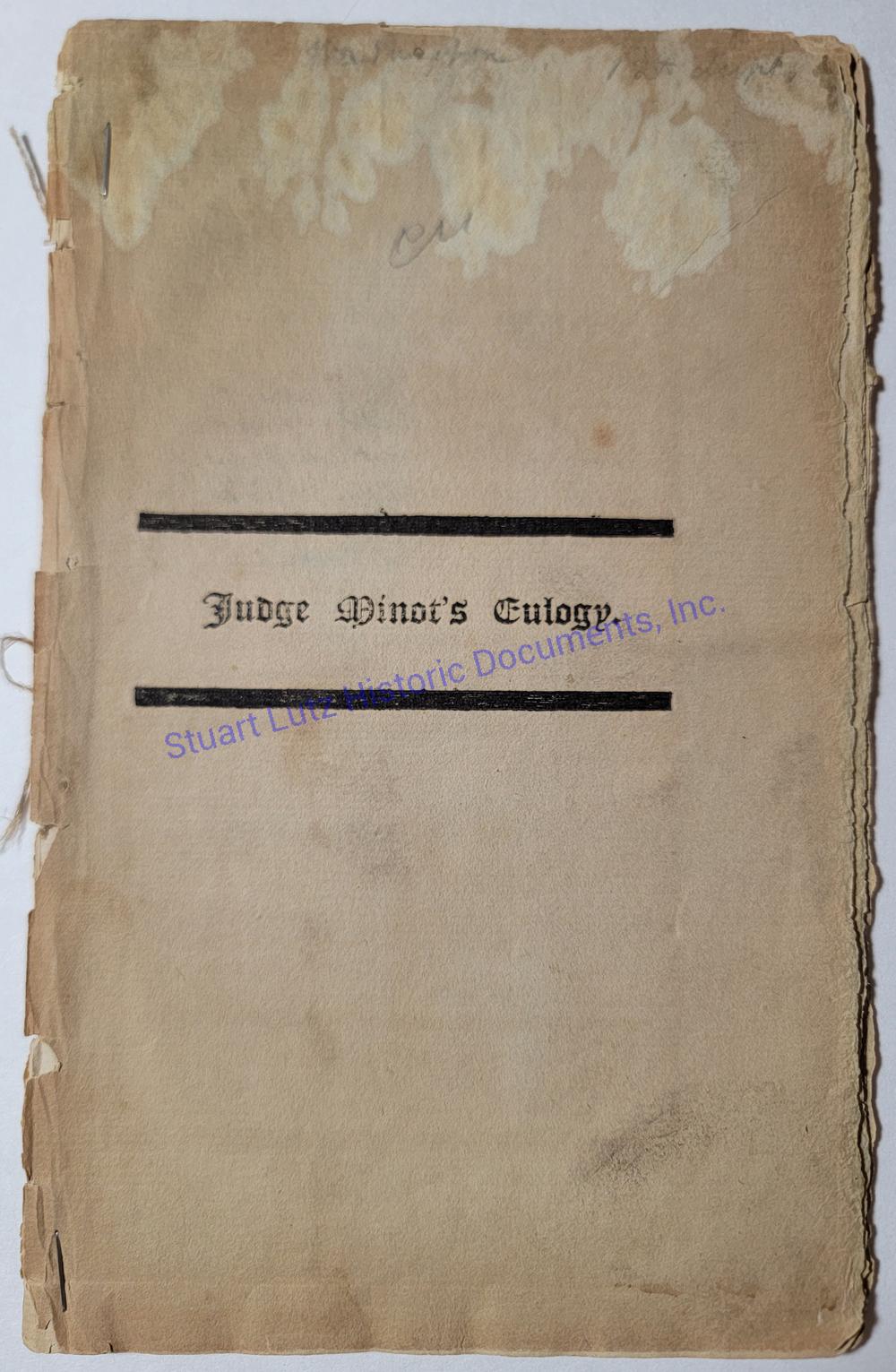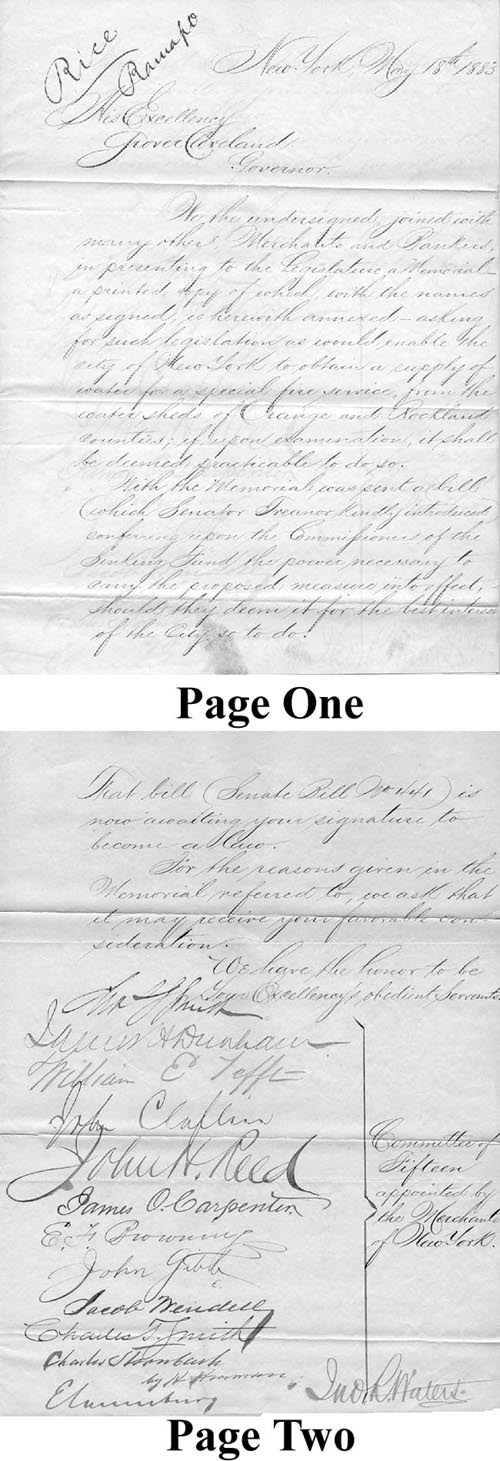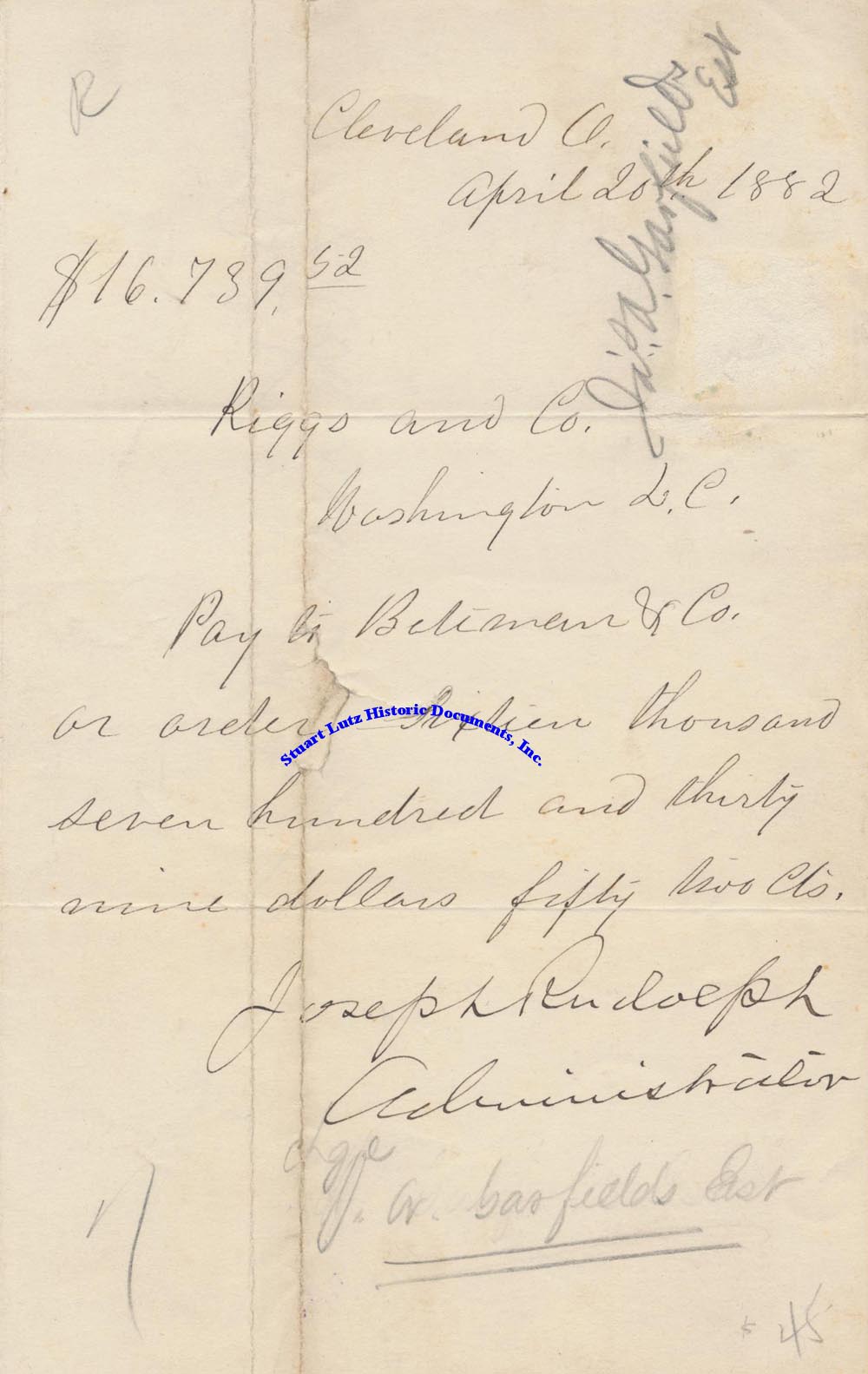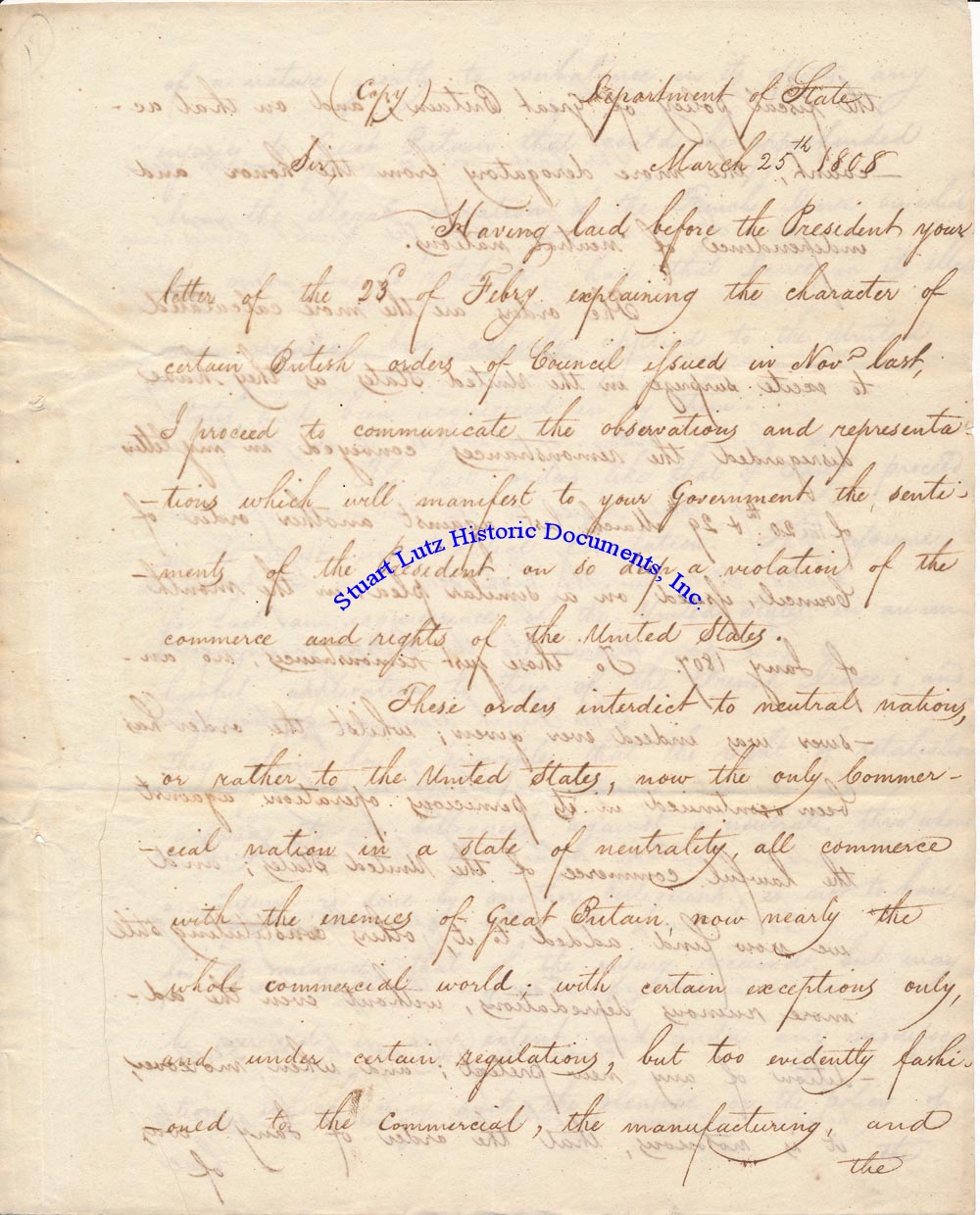| |
AS SECRETARY OF STATE, JAMES MADISON PROTESTS GREAT BRITAIN’S 1807 ORDERS IN COUNCIL, ON BEHALF OF “A NATION WHICH CANNOT FOR A MOMENT BE UNCONSCIOUS OF ITS RIGHTS”
JAMES MADISON (1751-1836). Madison was the Fourth President after being Thomas Jefferson’s Secretary of State. He was also the Father of the Constitution.
DAVID ERSKINE, 2nd BARON ERSKINE (1776-1855). Erskine was a British diplomat who served as Minister to the United States during the second half of Jefferson’s Presidency.
Document. 29pgs. March 28, 1808. Department of State, Washington. A contemporary copy of a very long letter sent by James Madison as Secretary of State to David Erskine as Great Britain’s Minister to the United States. Madison’s topic was the 1807 Orders in Council, a series of trade restrictions enacted by the Privy Council of the United Kingdom in response to the Napoleonic Wars. Their detrimental effect on American commerce led to the War 1812. Despite playing no role in the Napoleonic Wars, the young nation’s trade was essentially caught in the crossfire as Great Britain and Napoleonic France attempted to curtail each other’s ocean-going commerce, and the United States was having none of it. Madison’s letter conveys America’s anger over was it perceived as undeserved retaliation by England: “Having laid before the President your letter of the 23d of Febry explaining the character of certain British orders of Council issued in Novr. last, I proceed to communicate the observations and representations which will manifest to your government the sentiments of the President on so deep a violation of the commerce and rights of the United States. These orders interdict to neutral nations, or rather to the United States, now the only Commercial nation in a state of neutrality, all commerce with the enemies of Great Britain, now nearly the whole commercial word; with certain exceptions only, and under certain regulations, but too evidently fashioned to the commercial, the manufacturing, and the fiscal policy of Great Britain; and on that account, the more derogatory from the honor and independence of neutral nations…The last orders like that of Jany, proceed on the most unsubstantial foundation. They assume for fact an acquiescence of the United States, in an unlawful application to them of the French Decree: and they assume for a principle, that the right of retaliation accruing to one belligerent against a neutral, thro’ whom an injury is done by another belligerent, is not to have for its measure, that of the injury received, but may be exercised in any extent, and under any modifications which may suit the pleasure or the policy of a complaining party. The fact, Sir, is unequivocally disowned…I state with equal confidence, that at no time have the United States acquiesced in violation of their neutral rights injurious to Great Britain, or any other belligerent nation…Retaliations are measures of rigor in all cases. Where they are to operate thro’ a third and involuntary party, they will never be hastily resorted to by a magnanimous or a just power; which will always allow to the third party its right to discuss the merits of the case; and will never permit itself to enforce its measures, without affording a reasonable time for the use of reasonable means, for substituting another remedy. What would be the situation of neutral powers, if the first blow levelled thro’ them by one belligerent against another, was to leave them no choice but between the retaliating vengeance of the latter, and an [in]stand declaration of War against the former. Reason revolts against this, and the sole alternative. The United States could no more be bound to evade the British orders by an immediate war with France than they were bound to atone for the burning of the French ship of War on the shore of North Carolina by an immediate resort to arms against Great Britain…The French Decree of Novr 1806, undertook to declare the British Isles in a state of Blockade, to be enforced, if you please, against the neutral commerce of the United States, on the high seas, according to the faculty possessed for the purpose. As far as it was actually enforced or an effect resulted from an apprehension that it could and would be enforced, it was an injury to Great Britain, for which, let it be supposed, the United States were answerable. On the other hand, as far as it was not enforced, and evidently either would not or could not be enforced, no injury was experienced by Great Britain and no remedy could like against the United States…Such are the pretexts, and such the principles, on which one great Branch of the lawful commerce of this Country became a victim to the first British order; and on which the last orders are now sweeping from the ocean, all its most valuable remains. Against such an unprecedented system of warfare on neutral rights, and national independence, the common judgement and common feelings of mankind must forever protest. I touch, Sir, with reluctance the question on which of the belligerent sides, the invasion of neutral rights had its origin. As the United States do not acquiesce in these invasions by either, there could be no plea for involving them in the controversy…If the commerce of the United States could therefore in any case, be reasonably made the victim and the sport of mutual charges and reproaches between belligerent parties, with respect to the priority of their aggressions on neutral commerce, Great Britain must look beyond the epoch she has chosen for illegal acts of her adversary, in support of the allegation on which she found her retaliating Edicts against our commerce…I forbear Sir, to express all the emotions with which such a language, on such an occasion, is calculated to inspire a nation which cannot for a moment be unconscious of its rights, nor mistake for an alleviation of wrongs, regulations, to admit the validity of which would be to assume badges of humiliation, never worn by an independent power…In fini, Sir, the President sees in the Edicts communicated by you, facts assumed which did not exist, principles asserted which never can be admitted; and, under the name of retaliation, measures transcending the limits reconcilable with the facts and the principles, if both were as correct as they are unfounded. He sees, moreover, in the modifications of the system, regulations violating equally our neutral rights, and our national sovereignty. He persuaded himself therefore that your Government will see, in the justice of the observations now made, in addition to those I had the honor verbally to state to you in the first instance, that the United States are well warranted in looking for a speedy revocation of a system, which is every day augmenting the mass of injury for which the United States have the best of claims to redress.” The American Minister to Great Britain William Pickney docketed the verso. The British did not revoke the Orders in Council until 1812, by which time the United States had already declared war against Great Britain. Madison was President at this point. Filled with Madison’s prose and masterful argument, this letter is a fascinating insight into America’s international relations in its early years as a nation. In particular, it shows how the United States refused to be bullied by the country from which it had so recently won its independence. The letter is in fine condition, though the ink often shows through from page to page. Its contents appear in American State Papers, Foreign Relations, Vol. 3, p.209-13. A complete, typed transcript accompanies this manuscript copy. |

